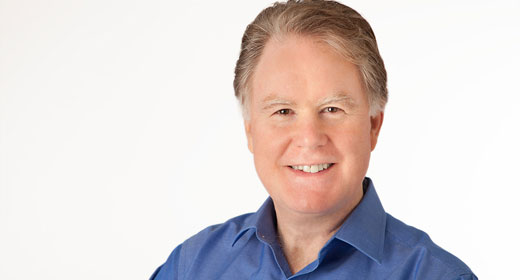by Dr. Alberto Villoldo: Our oldest myths claim that we all enter the world with a calling in our souls…
Carl Jung believed that when we don’t heed our calling—and this is not a call to greatness, but a call to meaning—then a life is wasted. Likewise, when we say yes to our destiny, we’re then able to transcend suffering, and triumph over seemingly impossible odds.
To have significance, our destiny doesn’t have to be grand or validated by public acclaim, but it must be imbued with meaning and purpose. This is entirely independent of whether we acquire material possessions, marry, raise a family, or become famous. We might find happiness with empty pockets and solitude, and we may also find pain and suffering with every comfort and beautiful companion in the world.
Our destiny is not the same as our future: While the future is what will happen later, destiny is in every instant, and we can always make ourselves available to it. Destiny is saying yes to the calling we’re born with, while fate is what happens when we fight or ignore our calling. This is a very ancient idea that runs counter to modern psychology and biology, which define our destiny by our psychological and genetic profiles. However, the more we identify ourselves by what our parents did or failed to do, what’s been programmed in our chromosomes, or what we own or wear, the more our story belongs to our ancestors and to others. We dull our lives by explaining them away with a list of causes that lie beyond our control.
We each choose a character and a calling before we’re born—these are innate to our very being and can’t be explained by psychological theories. We sometimes recognize these qualities in our children more easily than we do in ourselves: We wonder where their stubbornness, determination, or absentmindedness came from. Certainly, we applaud exceptional athletic skills or musical talent, but we fear other extraordinary characteristics such as a high need for movement and novelty that makes it difficult to sit still in class. In today’s medication-prone society, many of these children wind up getting treated with Ritalin, Prozac, and other drugs that would have numbed the creativity out of many of the geniuses of the past.
When we live in the future, looking forward to a day when we hope things will be better, we’re bound to time, which creeps forward “in this petty pace from day to day,” as Shakespeare said. But living in the future is really no different from living in the past: In both, we’re in the grip of fate, constantly reliving the pain that we’ve experienced, or longing for something or someone different from what we currently have. We continually experience and reexperience our past stories without changing their outcomes.
We can break this cycle during the soul retrieval process and heal our past, but that doesn’t make our destiny. We can be free of the hand of fate and still be far removed from our life’s calling, or we can be out of a bad relationship but not yet with our life partner. In other words, healing our past simply means that we’re no longer reliving old hurts.
Now, healing old hurts is no small thing: If we continue to carry them with us, we end up coloring our tomorrows with their pain and fear. In psychology, this mechanism is known as projection, and it’s one of the hazards of the therapeutic process. A psychologist who’s working from a wounded place can project his own problems onto a patient. For example, a therapist who was going through a very painful conflict with a sibling over an inheritance once told me, “Alberto, all of my clients are fighting over money.” This sounded strange to me, because my own clients have a wide variety of problems. It was clear that this man was unconsciously attracting patients who were going through his own dilemma, and he was projecting his shadow onto them in an attempt to heal himself.
In a similar way, we project our unhealed hurts onto others—this is especially true when we journey for destiny in an unhealed state. We reinfect ourselves and our destinies by projecting our wounds onto our future, rather than experiencing life as an unfolding series of new experiences. If we don’t heal, we’ll spend our lives continually reinventing new versions of the same spouse, job, and opportunity—we’ll whittle 20 years of experience into one year of experience repeated 20 times.
We simply cannot leap forward without healing our foundation—we must go through soul retrieval before we can explore our destiny. The soul retrieval journey is essential preparation, for it transplants the acorn of our potential from rocky ground to fertile earth. When we track destiny, we germinate the acorn of the great tree within us. We heal the past in order to journey to the Upper World, free of the traumas that have kept us from achieving our potential, and without the danger of infecting our future.









































